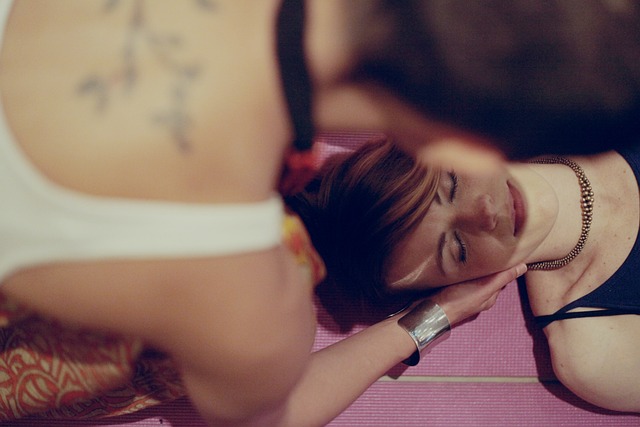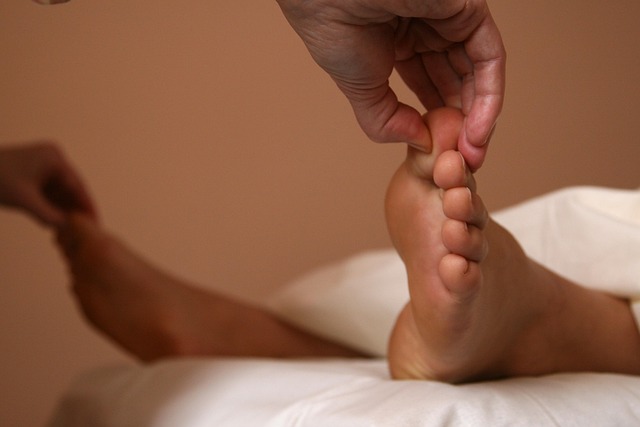Chronic stress, triggered by work and relationships, causes physical and mental symptoms like increased heart rate and irritability. It can lead to severe health issues, underscoring the need for effective stress relief techniques as part of personal wellness plans. Combining mindfulness exercises (e.g., meditation, deep breathing), fitness routines, balanced diet plans, and self-care practices (like adequate sleep, hobbies) significantly enhances emotional well-being strategies and provides mental health support, fostering resilience to life's challenges for a fulfilling, stress-free existence. These holistic wellness solutions mitigate risks of anxiety, depression, and physical ailments like cardiovascular diseases.
Stress is an inevitable part of life, but managing it effectively is key to achieving optimal personal wellness. This article explores comprehensive solutions for individuals seeking to navigate and reduce stress, encompassing both mental and physical health. We delve into the science behind stress, its impact on overall well-being, and provide practical techniques such as mindfulness exercises, relaxation strategies, and lifestyle changes. Additionally, we emphasize self-care practices and offer insights into emotional healing, guiding readers towards crafting personalized wellness plans for a balanced and fulfilling life. Discover proven healthy lifestyle tips, from fitness routines and diet plans to creative outlets and professional mental health support.
- Understanding Stress and Its Impact on Well-being
- – Defining stress and its various manifestations
- – Exploring the connection between stress and mental/physical health
- Mindfulness and Relaxation Techniques for Stress Reduction
Understanding Stress and Its Impact on Well-being

Stress is a natural response to various life challenges and demands, but when it becomes chronic, it can significantly impact an individual’s overall wellness. Understanding stress involves recognizing its triggers—be they work pressures, personal relationships, or financial concerns—and acknowledging the physical and mental symptoms it elicits, such as increased heart rate, insomnia, and irritability. Prolonged exposure to stress may lead to more severe health issues, affecting both emotional well-being strategies and mental health support needs. This is why exploring effective stress relief techniques is essential for fostering personal wellness plans.
In today’s fast-paced world, incorporating wellness solutions for individuals can be transformative. Healthy lifestyle tips, including structured fitness routines and balanced diet plans, play a pivotal role in managing stress levels. Additionally, mindfulness exercises and self-care practices are powerful tools to enhance emotional well-being strategies, enabling individuals to navigate life’s challenges with greater resilience. By integrating these techniques into daily routines, individuals can promote overall health and create a foundation for a more fulfilling, stress-free life.
– Defining stress and its various manifestations

Stress is a multifaceted response to various internal and external stimuli, impacting both our physical and mental states. It can manifest as feelings of anxiety, overwhelm, or tension, often stemming from demanding lifestyles, work pressures, or personal challenges. This universal experience affects individuals differently; what’s stressful for one person might not be for another, making stress management a deeply personal journey.
Navigating stress-reduction techniques is key to cultivating wellness solutions for individuals seeking to enhance their emotional well-being and overall health. Mindfulness exercises, such as meditation or deep breathing, offer powerful tools to ground oneself in the present moment, thereby reducing the impact of anxious thoughts. Combining these practices with healthy lifestyle tips like structured fitness routines and balanced diet plans can significantly contribute to personal wellness plans. Additionally, self-care practices, including adequate sleep and quality time for hobbies, are essential emotional well-being strategies that support mental health and foster a sense of equilibrium in daily life.
– Exploring the connection between stress and mental/physical health

Stress is a prevalent issue that can significantly impact an individual’s overall wellness if left unaddressed. It is essential to recognize the deep connection between stress and mental/physical health. Prolonged exposure to stressful situations can lead to various adverse effects on both the mind and body. Chronic stress may contribute to increased anxiety, depression, and even physical ailments like cardiovascular diseases, high blood pressure, and weakened immune systems.
Understanding this relationship is crucial when developing personal wellness plans. Implementing stress relief techniques such as mindfulness exercises, meditation, or engaging in fitness routines can be transformative. These activities promote emotional well-being strategies by teaching individuals to manage their responses to stressful triggers. Additionally, adopting healthy lifestyle tips, including balanced diet plans and regular self-care practices, reinforces the body’s natural ability to recover and thrive in the face of daily pressures, ultimately contributing to optimal mental health support.
Mindfulness and Relaxation Techniques for Stress Reduction

Mindfulness and relaxation techniques are powerful wellness solutions for individuals seeking to reduce stress and enhance their overall personal wellness plans. These practices encourage a focus on the present moment, helping individuals detach from stressful thoughts and emotions. Mindfulness exercises, such as deep breathing or guided meditation, have been shown to significantly improve emotional well-being strategies by calming the mind and reducing anxiety.
Incorporating these techniques into daily routines can be easily done through simple practices like mindful walking, where one pays attention to each step and sensory experience, or engaging in relaxation exercises before bedtime to promote better sleep. Combining mindfulness with healthy lifestyle tips such as balanced diet plans, regular fitness routines, and self-care practices can create a holistic approach to stress relief techniques, ultimately supporting mental health and fostering a more peaceful and productive life.
Incorporating stress-reduction techniques into your personal wellness plan is a game-changer for improving both mental and physical health. By understanding the impact of stress and utilizing evidence-based methods like mindfulness exercises and relaxation techniques, individuals can navigate life’s challenges with resilience. Investing time in self-care practices, such as fitness routines and balanced diet plans, alongside emotional well-being strategies, ensures a holistic approach to wellness solutions for individuals seeking a happier, healthier life. These simple yet powerful tools empower us to create a symphony of calm amidst the hustle and bustle of daily life.
